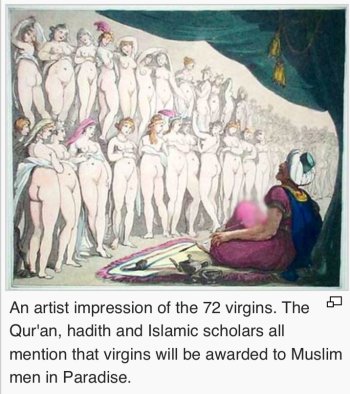" But God is almighty, and if he is in us and us in him, then he can truly bless us with heavenly things." — dev553344
Hey
@dev553344 :)
I have made use of
@Papa Smurf suggestion
and have visited GOTQUESTIONS.org
What did Jesus mean when He said, “The kingdom of God is within you”? How is the kingdom of God within us? Is “within you” a good translation in Luke 17:21?
www.gotquestions.org
I've learnt about multiple translations, and that they
recommend
"among" instead of
"within".
I guess that the main objection is: How could the kingdom of God
possibly be
"within" these Pharisees?
My question is: How could the kingdom of God
possibly be
"among" these Pharisees?
In my humble opinion, the most important
question, in the context
of
Luke 17:20–21, and also considering the fact that Jesus the Christ
had said that to these Pharisees
before his resurrection,
is :
OBJECTION --
How could the kingdom of God possibly be
"among"
anybody else than Jesus' closest disciples,
because at this moment there were
no Christians
yet. :)
The way I see it, there are two reasons why the
"within"
is correct, and the
"among" is wrong in
Luke 17:20–21 only.
If we assume, despite the above
OBJECTION, that what Jesus the Christ
meant was that the kingdom of God were to be
among these Pharisees,
then we could also say, ‘Look, here it is!’ or ‘There it is!’
because the kingdom of God would have come with things
that can be observed, like with these Pharisees and a place
where they are:
‘ Look, the kingdom of God is
there, among these Pharisees! ’
Because, as Jesus the Christ said, the kingdom of God will
not come
with things that can be
observed, then in my humble opinion,
it
will come to us
un-observed, hidden deep
within us,
the baptized Christians, exactly like it is illustrated in
the Parable of the Leaven
:
What is the meaning of the Parable of the Leaven? Why did Jesus often speak using parables instead of teaching more clearly?
www.gotquestions.org
View attachment 39742
The Parable of the Leaven speaks about
the kingdom of Heaven,
and
not about the kingdom of God. Is the kingdom of Heaven
something else than the kingdom of God?
I doubt.
God lives in Heaven, and therefore Heaven is the kingdom of God. :)
From GOTQUESTIONS.org
: " In the current age, the kingdom
of Heaven is spiritual, existing
within the hearts of believers. "
So, why Jesus the Christ said that the kingdom of God
already is within these Pharisees?
In my humble opinion, it is because all humans, without exception,
have a God-given soul, which isn't a thing that can be observed.
However, this God-given soul within these Pharisees, and within
all non-Christians, as a
"Passport to the Heavenly Kingdom of God"
still needs to be stamped with the
"Permanent Resident Visa"
by Jesus within our heart, for our
inner journey to be fully successful.
Dear sister
@Cassandra , there are
many Christian Churches
in my twin cities,
Kitchener-Waterloo, so please pray for me
that the Holy Spirit guides me to my church, where I will be baptized.
View attachment 39744
The Parable of the Leaven
Jesus’ Parable of the Leaven is found in two of the Gospels. It is a very simple story—a snapshot of life, really: “The kingdom of heaven is like yeast that a woman took and mixed into a large amount of flour until it worked all through the dough” (
Matthew 13:33, GW; cf.
Luke 13:20-21).
Jesus uses this story as an object lesson to illustrate the kingdom of heaven. A woman takes yeast (leaven) and mixes it into dough. Eventually, the whole of the dough is leavened. What does it mean?
First, it’s important to define “kingdom of heaven.” By this, Jesus is referring to His domain as the Messiah.
In the current age, the kingdom of Heaven is spiritual, existing within the hearts of believers (
Luke 17:21). Later, the kingdom will be manifest physically, when the Lord Jesus establishes His throne on this earth (
Revelation 11:15).
In the Parable of the Leaven, we learn several things about the working of the kingdom in our present age. Each of these lessons stems from the nature of yeast.
First, the kingdom of God may have small beginnings, but it will increase. Yeast is microscopic in size, and only a little is kneaded into the dough. Yet, given time, the yeast will spread through all the dough. In the same way, Jesus’ domain started with twelve men in an obscure corner of Galilee, but it has spread throughout the world. The gospel makes progress.
Second, the kingdom of God exerts its influence from within, not from without. Yeast makes dough rise from within. God first changes the heart of a person, and that internal change has external manifestations. The gospel influence in a culture works the same way: Christians within a culture act as agents of change, slowly transforming that culture from within.
Third, the effect of the kingdom of God will be comprehensive. Just as yeast works until the dough has completely risen, the ultimate benefit of the kingdom of God will be worldwide (
Psalm 72:19;
Daniel 2:35). “The earth will be filled with the knowledge of the glory of the Lord as the waters cover the sea” (
Habakkuk 2:14).
Fourth, although the kingdom of God works invisibly, its effect is evident to all. Yeast does its job slowly, secretly and silently, but no one can deny its effect on bread. The same is true of the work of grace in our hearts.
The nature of yeast is to grow and to change whatever it contacts. When we accept Christ, His grace grows in our hearts and changes us from the inside out. As the gospel transforms lives, it exerts a pervasive influence in the world at large. As we “reflect the glory of the Lord, . . . the Lord—who is the Spirit—makes us more and more like him as we are changed into his glorious image” (
2 Corinthians 3:18, NLT).
View attachment 39741





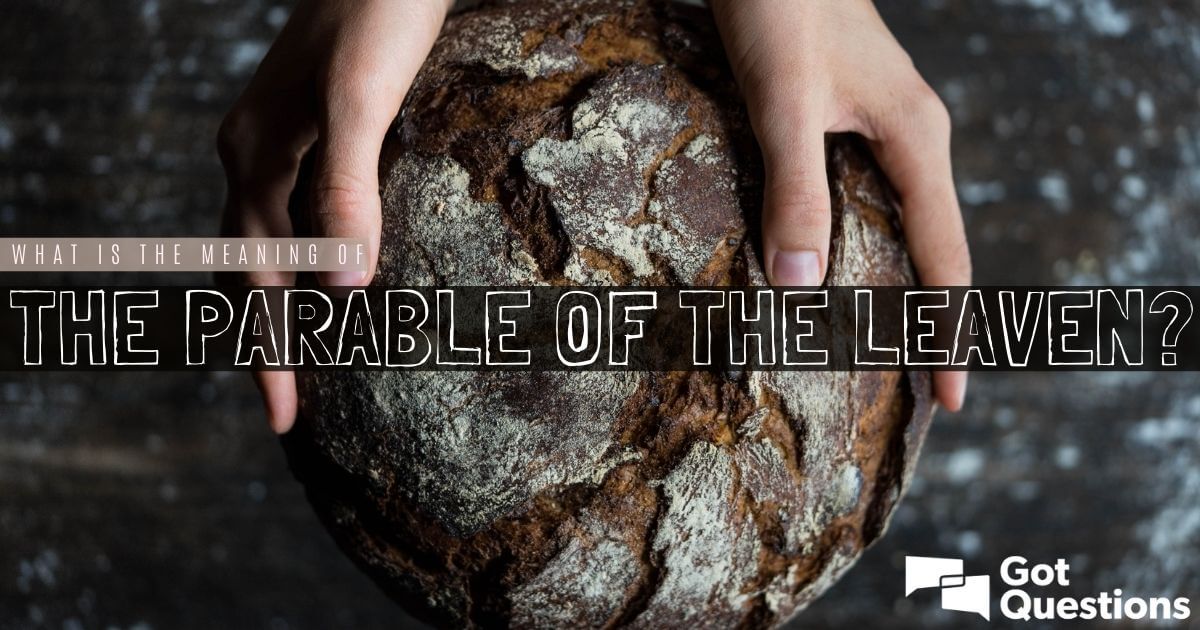
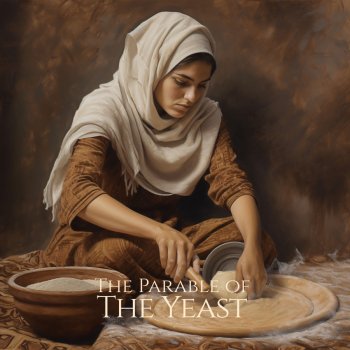
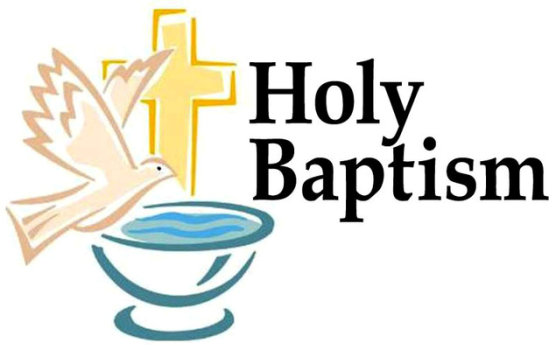
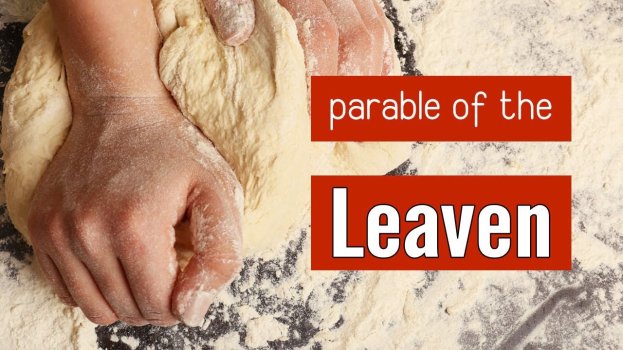
 e, Glad to have you here with us, your question is a good one, but maybe this might help:
e, Glad to have you here with us, your question is a good one, but maybe this might help:
